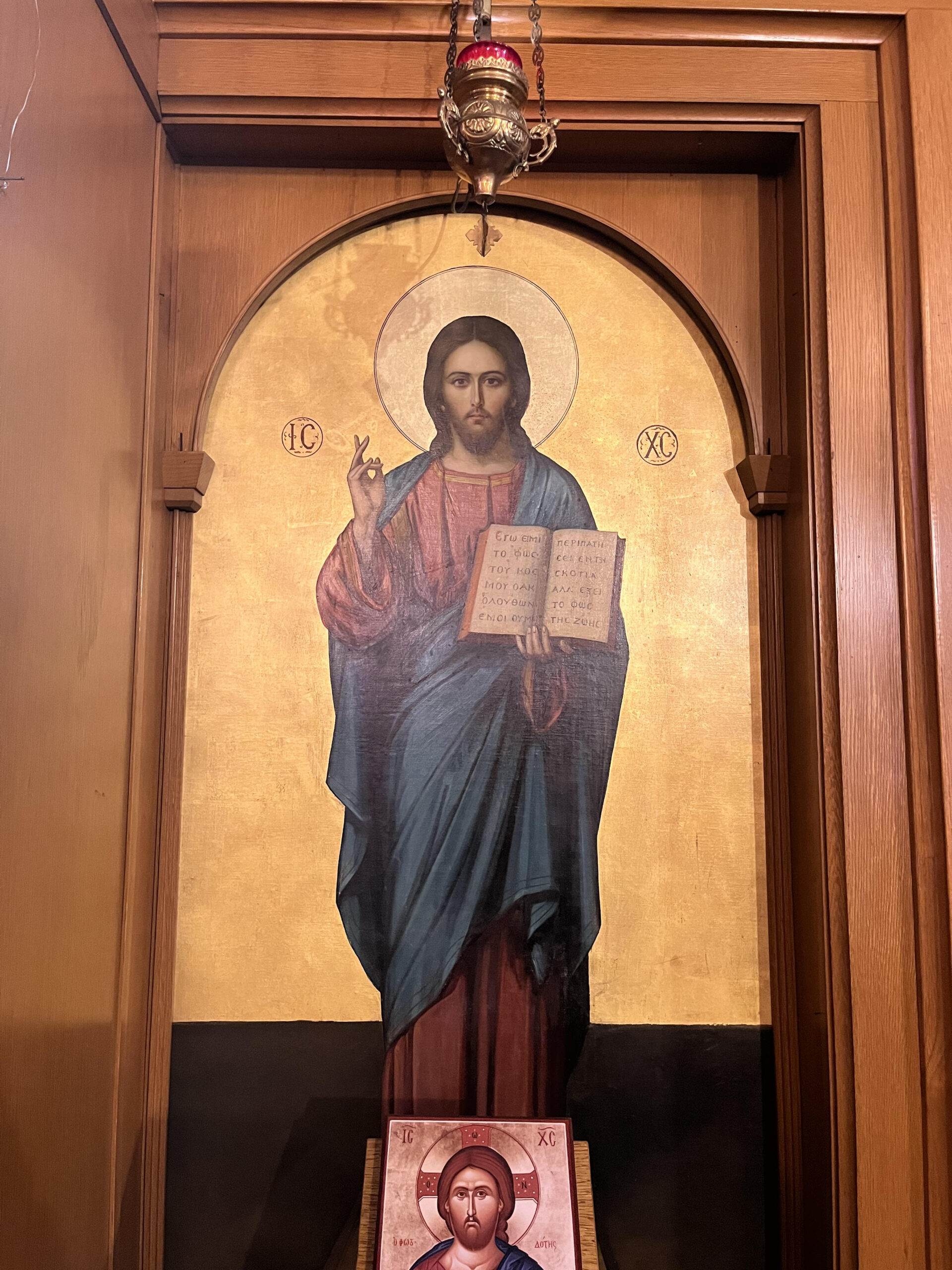Food will not commend us to God. We are no worse off if we do not eat, and no better off if we do. Only take care lest this liberty of yours somehow become a stumbling block to the weak. For if any one sees you, a man of knowledge, at table in an idol’s temple, might he not be encouraged, if his conscience is weak, to eat food offered to idols? And so by your knowledge this weak man is destroyed, the brother for whom Christ died. Thus, sinning against your brethren and wounding their conscience when it is weak, you sin against Christ. Therefore, if food is a cause of my brother’s falling, I will never eat meat, lest I cause my brother to fall. Am I not free? Am I not an apostle? Have I not seen Jesus our Lord? Are not you my workmanship in the Lord? If to others I am not an apostle, at least I am to you; for you are the seal of my apostleship in the Lord.
I Corinthians 8:8-9:2 (Epistle from Sunday of Last Judgment)
This Sunday is “affectionately” (or dreadfully) known as Meat-Fare Sunday. Everyone in the Orthodox world gets caught up in the “sad” reality that this is the last day to eat meat for eight weeks, until we reach the feast of the Resurrection. This gives credence to the idea that Lent is a period of deprivation, rather than a period of spiritual growth. There are people who will deprive themselves of food but won’t go to any additional services, or go to confession, or read the Bible, pray, or receive Communion. They will keep bad habits just as they do now. And they will miss the whole point of Great Lent. The point of Lent isn’t to deprive oneself of anything but to grow closer to Christ. The purpose of the fasting is to gain control over something we like—certain kinds of food—and to then try to gain control over other things we like to do—like get angry, hold grudges, drive like maniacs, etc.
Saint Paul points out in the Epistle lesson of this Sunday that “Food will not commend us to God. We are no worse off if we do not eat, and no better off if we do. Only take care lest this liberty of yours somehow become a stumbling block to the weak.” (I Corinthians 8:8-9) Being a good “faster” is not what is going to get us into the Kingdom of heaven. Anyone with any kind of willpower can avoid certain kinds of food for a period of time. Don’t get me wrong, fasting is an important spiritual discipline, but it is not the only spiritual discipline. The “stumbling block” comes when we make Lent and Orthodox Christianity all about fasting, all about rules, and we forget the most important rule, which is to love one another. Jesus said, “By THIS all men will know that you are My disciples, if you have love for one another.” (John 13:35) We will not be known by our fasting, but by our love.
Saint Paul is quick to point this out when he writes “Thus, sinning against your brethren and wounding their conscience when it is weak, you sin against Christ.” (8:12) Fasting purifies us as individuals. However, we have a duty to not only worry about ourselves but to care for our brother. The Gospel lesson of this Sunday, which will be discussed in the next reflection, will talk about concrete ways to show love to one another—feeding the hungry, welcoming the stranger, clothing the naked, and visiting the sick. This Epistle lesson warns that part of loving our brother is making a conscious effort to not hurt our brother, especially wounding his conscience. We don’t want to be planting seeds of doubt in the minds of our brethren. We should not create excessive anxiety for our brethren.
We are supposed to love our neighbor. We are not supposed to wound our neighbor. And we are not supposed to lead our neighbor into sin, or as St. Paul writes to “cause my brother to fall.” (8:13) When we do things that make our brother fall, we are committing a sin as well. For instance, if I encourage my brother to steal from a store (even if I am not stealing myself), this is a sin, against both him and against Christ. Legally, he will be committing the crime of theft, but morally, I would be as complicit in this crime as he is, for encouraging him to fall. Therefore, we are to not only love our neighbor, but we are to encourage our neighbor to do what is right, and we have an obligation to our neighbor to build him up and encourage him by modeling Christ-like behavior and Christ-like love.
In Matthew 15:10-11, we read “And Jesus called the people to Him and said to them, ‘Hear and understand: not what goes into the mouth defiles a man, but what comes out of the mouth, this defiles a man.’” As we begin our season of fasting this coming week, it is important to watch what we are putting into our mouths. Fasting is a good spiritual discipline. But fasting is not about only what we are eating or not eating, but what is coming out of our mouths. As we watch what we put into our mouths, we have to watch what comes out of them as well. This is even more important.
Let us first cleanse ourselves, O brethren, by the queen of virtues, for behold, she is here, providing us with a wealth of blessings! She suppresses our swelling passions, and reconciles offenders with the Master. Therefore, let us welcome her with a cheerful heart, crying out to Christ our God, “You who rose from the dead, keep us uncondemned as we glorify You, the only sinless One.” (Doxastikon from Matins, Sunday of the Last Judgement, Trans. by Fr. Seraphim Dedes)
Watch what you eat. More importantly, watch what you say and what you do!

